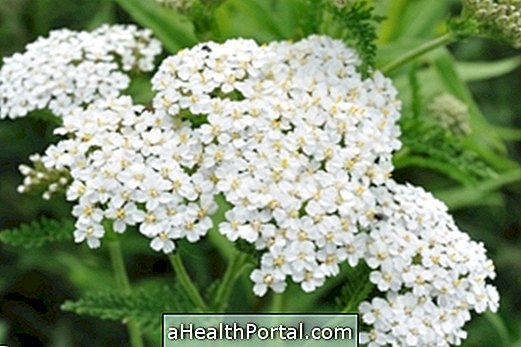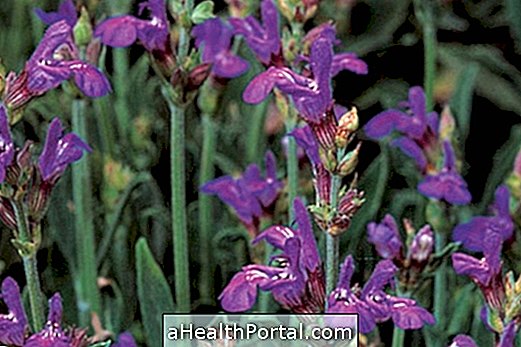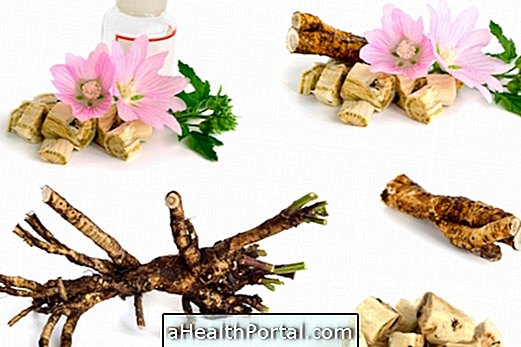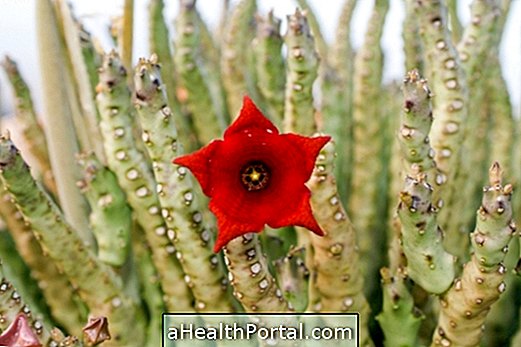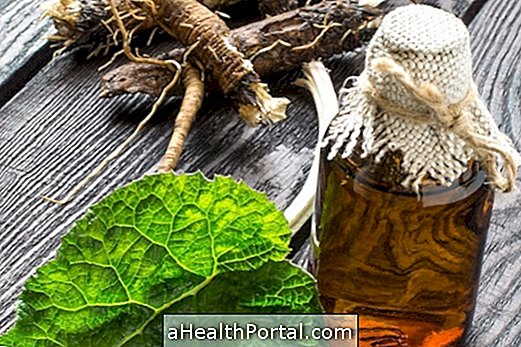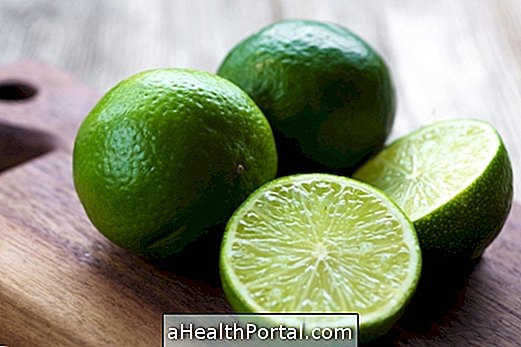Medicinal plants are all those that have active principles that help in the treatment of diseases and can even lead to its cure. They are used in the form of teas or infusions that should be ingested daily for the duration of treatment, but care must be taken when consuming them, as some of them may be toxic.
Medicinal plants serve to complement the treatment of several diseases but they should not be used without the knowledge of the doctor because they can cause some drug interaction and interfere in the healing process of the disease.
Medicinal Plants to Lose Weight
Some examples of medicinal plants for weight loss are:
- Horsetail : It is diuretic. Boil 1 tablespoon of the herb for 5 minutes in 250 ml of water and take 3 times a day for 4 weeks;
- Oliveira : Rich in fiber, promotes satiety and improves intestinal transit. Boil 1 handful of the herb in 1 liter of water and drink several times a day;
- Ginger : Accelerates the metabolism, making the body spend more energy even when stopped. Infuse 1 tablespoon of ginger in 1 liter of boiling water and gradually drink;
- Maté tea : It favors the burning of fats. Boil 1 teaspoon to each cup. Drink 3 to 4 times a day.
A herbalist or nutritionist can indicate the correct use of all herbal medicines to lose weight, indicating the dose required.
Medicinal Plants for Urinary Tract Infection
Some examples of medicinal plants for urinary tract infection are:
- Capuchin: mix 35 drops of cappuccino tincture in 1/5 cup warm water and drink up to 5 times a day;
- Horseradish: add 2 teaspoons of dried horseradish leaves in 2 cups boiling water, let stand for 5 minutes, strain and take up to 3 cups a day;
- Grapefruit: add 500 ml of boiling water to a bowl containing 2 teaspoons of dried grapefruit leaves, cover, let stand for 15 minutes, strain and drink the tea;
- Uxi-yellow: put 5 g of peel and 500 ml of water in a pan and boil for about 4 minutes, let stand for 10 minutes, strain and drink up to 3 cups a day.
These medicinal plants can be used for urinary tract infection because of their antibacterial, antimicrobial, diuretic and anti-inflammatory action.
Medicinal Plants for Diabetes
Some examples of medicinal plants for type 1 and type 2 diabetes are:
- Poejo : It is digestive, diuretic and facilitates weight loss;
- Cow's Paw : Helps control blood glucose levels;
- Carqueja : It is anti-diabetic.
To prepare these medicinal plants, simply add 10 grams of the herb to each half liter of boiling water and drink 3 cups of tea per day.
Medicinal Plants for Hemorrhoids
Some examples of medicinal plants for hemorrhoids are:
- Indian Chestnut: add 15 g of guinea-fowl leaves in 500 ml of boiling water, leave to stand for 15 minutes, strain and drink 1 cup of this tea 3 times a day.
- Hamamelis: Add 1 teaspoon of dried witch hazel leaves in 500 ml of water and put to a boil. After boiling, strain, put in a bowl, cool and allow to sit for 20 minutes.
Guinea-pig has vasoconstricting and anti-inflammatory action, while witch hazel has an astringent, anti-inflammatory and anti-hemorrhagic action, helping to disinflate the anal region and reduce hemorrhoids.
Medicinal Plants for the Kidneys
Some examples of medicinal plants for the kidneys are:
- Leather Hat: put 2 g of dried leather hat leaves in a pan with 300 ml of water, boil for 10 minutes, allow to cool, strain and drink up to 3 cups a day;
- Parsley: Add 2 teaspoons chopped parsley in 2 cups boiling water, let stand for 10 minutes, strain and drink the tea;
- Stone breaker : Put 1 tablespoon of rock-breaker leaves in 1 liter of water, put to a boil, cool, strain and drink 2 to 3 cups of tea per day;
Corn Hair: Put 1 tablespoon cornstarch in 1 cups of water, cover, put to boil for 10 minutes, strain, allow to soften and drink about 2 to 3 cups a day.
The leather hat, parsley and corn hair help eliminate kidney stones because of its diuretic and cleansing properties, while corn tea helps to clear the kidneys' channels, making it easier for the stones to escape. kidneys.
Where to buy herbal medicines
Medicinal plants can be bought at health food stores, some pharmacies, supermarkets and hypermarkets or at the home of people who grow it and sell it to the public.
To think of being natural, care must be taken in using the plants because some of them can provoke some reactions because they contain toxic substances. Some care you should take when buying medicinal plants are:
- Conservation : See if it is out of the light and in a dry place, if they are tightly closed in glass jars or in tightly closed sachets. Do not buy herbs exposed to the environment where they can be contaminated by insects,
- Name : Beware of popular names, know the scientific name of the plant,
- Validity : Do not buy a large quantity, because they also have expiration date.
Buying plants and medicinal herbs following these tips is critical to ensure their safety and effectiveness.
Here's how to use other medicinal plants in:
- Hibiscus tea for easy weight loss
- Home Remedy for Urinary Tract Infection
- Home remedy for diabetes
